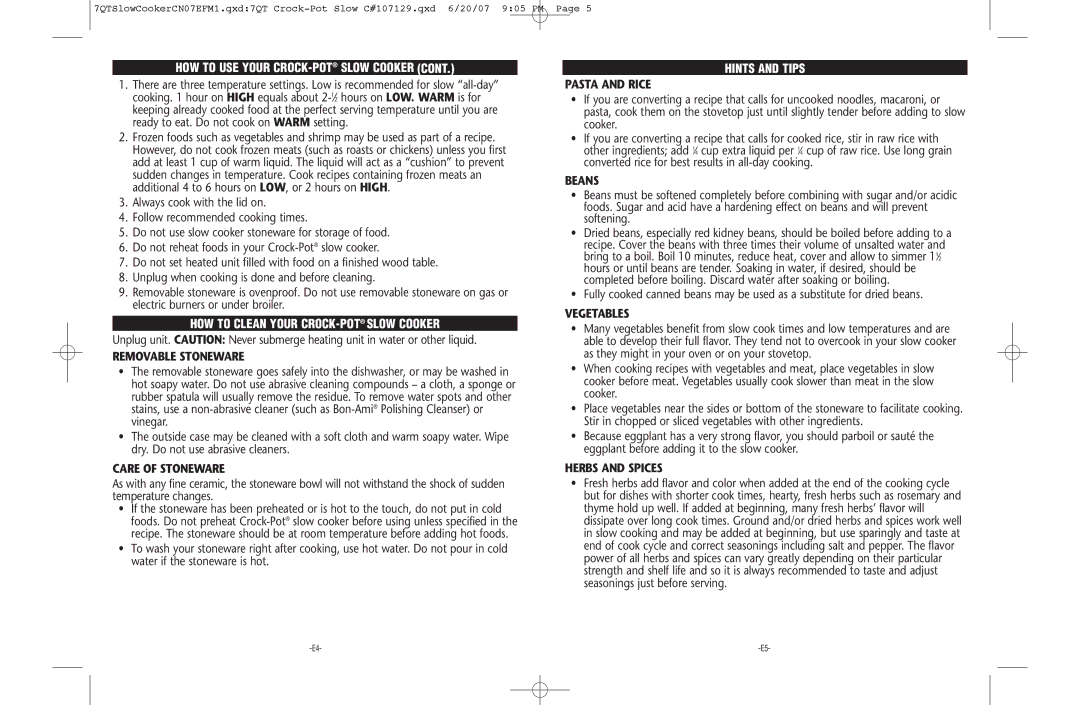7qt specifications
Jarden Consumer Solutions has carved a niche in the home appliance market, and one of its standout products is the Jarden Consumer Solutions 7QT Slow Cooker. This kitchen essential offers home cooks the convenience and flexibility of preparing flavorful meals with minimal effort.The 7QT Slow Cooker is particularly designed for individuals or families who appreciate the art of slow cooking, catering to larger portions without compromising on quality. One of its defining features is the generous 7-quart capacity, which allows you to easily prepare meals for parties, gatherings, or meal prep for the week. This feature is ideal for soups, stews, and casseroles where larger quantities are often needed.
Equipped with advanced technology, the Jarden Consumer Solutions 7QT Slow Cooker utilizes a programmable timer, allowing users to set cooking times of up to 20 hours. This ensures your meals are cooked to perfection without the need for constant monitoring. The digital display is easy to read and operate, making it user-friendly for cooks of all skill levels.
Another noteworthy characteristic of this slow cooker is its multiple heat settings. You can select from low, medium, and high options to suit different recipes and cooking styles. Whether you prefer a low-and-slow approach or a quicker, high-heat option, this slow cooker adapts to your needs, providing flexibility in meal preparation.
In terms of design, the Jarden Consumer Solutions 7QT Slow Cooker features a sleek exterior that blends well with most kitchen decors. The removable stoneware pot is convenient for both cooking and serving, while also being dishwasher-safe for easy cleanup. The lid locks securely in place, preventing spills and splatters, making it a great option for transporting meals to potlucks or gatherings.
Safety is also a prime concern with this slow cooker, as it includes cool-touch handles and a tempered glass lid, allowing you to monitor your meals safely. With the ability to create delicious, home-cooked meals effortlessly, the Jarden Consumer Solutions 7QT Slow Cooker stands out as a reliable and practical appliance in any kitchen. Its combination of generous capacity, programmable features, and thoughtful design makes it an essential tool for both novice and experienced cooks alike.

